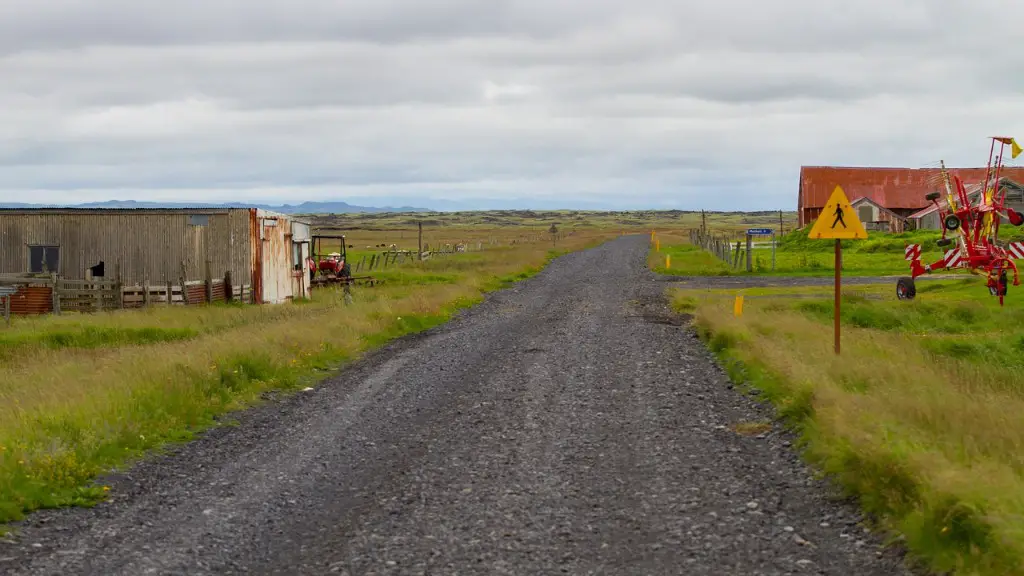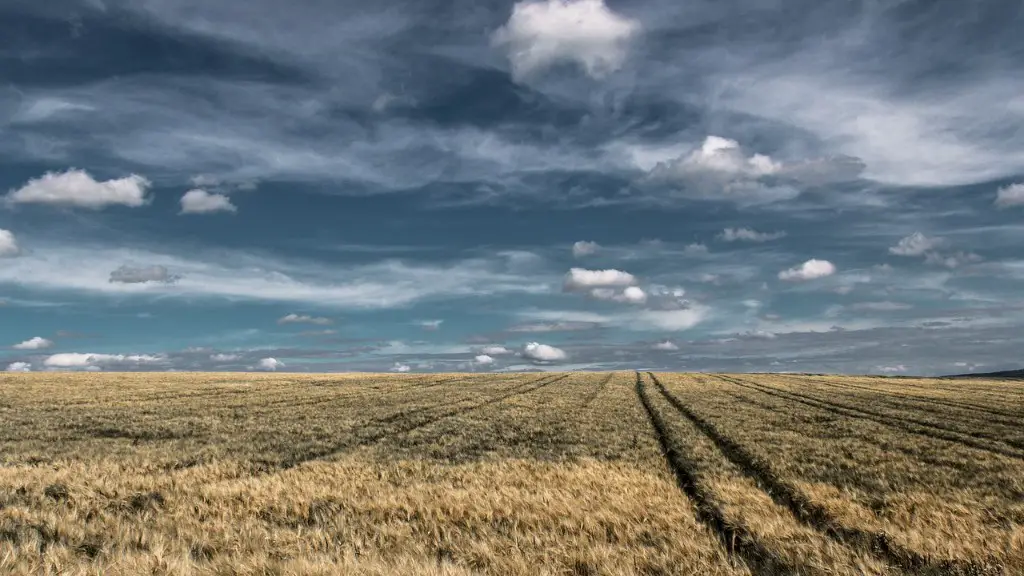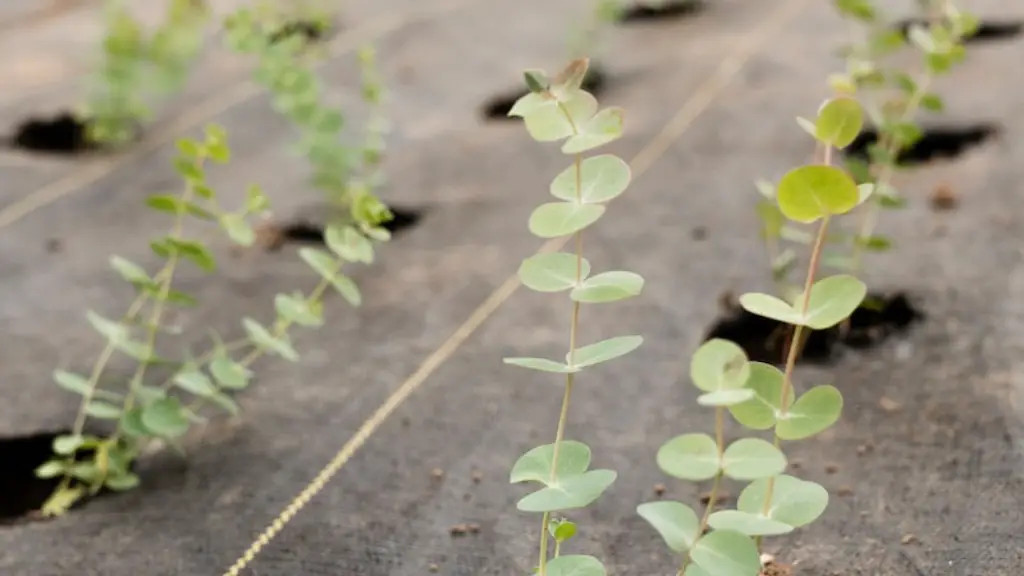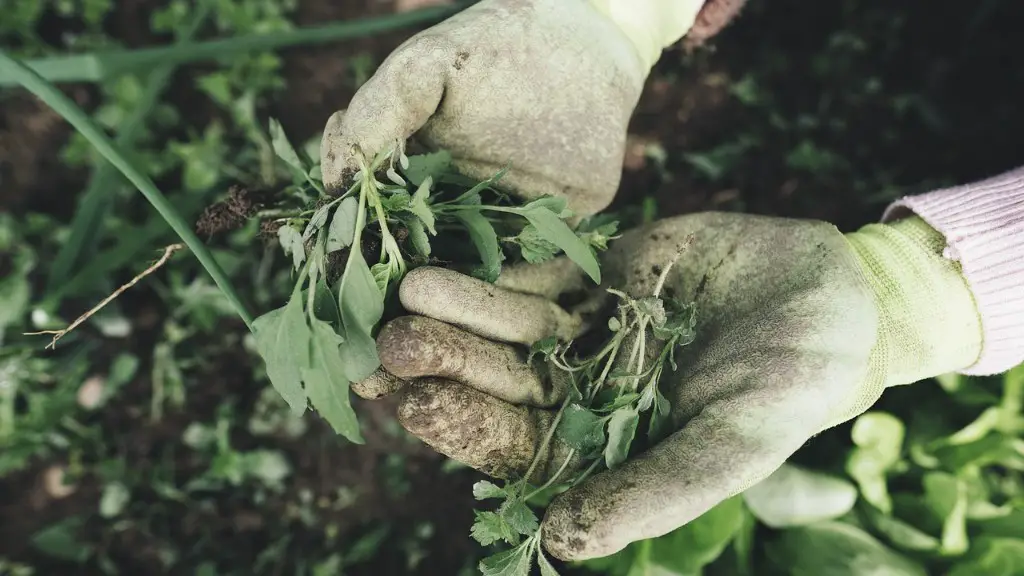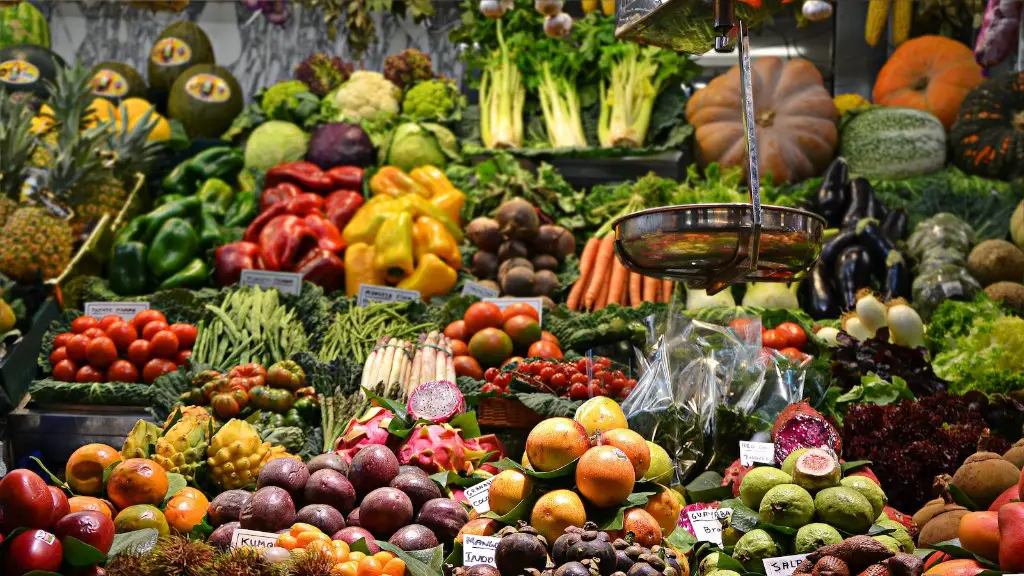Agriculture is the process of producing food, feed, fiber, and other desired products by the cultivation of certain plants and the raising of domesticated animals. It is an important part of our daily life as it provides us with the food we need to survive. Agriculture can also have a negative impact on our daily life, however, as it can contribute to pollution and soil erosion.
Agriculture affects our daily life in many ways. The food we eat comes from agriculture, and the clothes we wear are often made from agricultural products. Agriculture also provides the raw materials for many of the products we use every day, such as paper and toothpaste.
What are some examples of agriculture in everyday life?
Agriculture has a huge impact on our daily lives – even if we don’t realize it. Here are seven ways that agriculture affects us on a daily basis:
1. Food: Agriculture is responsible for the food we eat. Every time we sit down for a meal, we are relying on farmers to provide us with the ingredients.
2. Fuel: Agriculture is also responsible for the fuel we use. Oil and gas come from crops like corn and soybeans.
3. Textiles: The clothes we wear are also made possible by agriculture. Cotton is a major crop in the United States, and it is used to make everything from jeans to t-shirts.
4. Sleep: Even our bedding is made possible by agriculture. Most mattresses are filled with cotton, wool, or down – all of which come from farm animals.
5. Sports: Agriculture is responsible for the equipment we use in sports. For example, baseballs are made from cowhide, and golf balls are made from rubber – both of which come from agricultural products.
6. The Economy: Agriculture is a major driver of the economy. In the United States, agriculture accounts for about $1 trillion of the GDP.
When early humans began farming, they were able to produce enough food that they no longer had to migrate to their food source. This meant they could build permanent structures, and develop villages, towns, and eventually even cities. Closely connected to the rise of settled societies was an increase in population.
What impact does agriculture have on humans
There is a growing body of evidence indicating that farmers have an increased prevalence of many acute and chronic health conditions, including cardiovascular and respiratory disease, arthritis, skin cancer, hearing loss, and amputations. Other health outcomes that have been little studied in the agricultural workplace include stress and adverse reproductive outcomes.
This is likely due to a combination of factors, including exposure to hazardous chemicals and materials, long hours spent working in physically demanding conditions, and the general stress of running a farm.
Given the importance of the agricultural sector to the economy and the potential health risks faced by farmers, more research is needed to better understand the health risks associated with farming and to develop interventions to mitigate these risks.
Agriculture is a vital industry that supports the livelihoods of billions of people around the world. It generates trillions of dollars worth of food annually and occupies a significant amount of the world’s habitable land. Agriculture not only provides food and employment, but also supports a multitude of other species by providing habitat and food.
How did agriculture impact us?
Agriculture, food, and related industries are a vital part of the US economy, contributing roughly $1264 trillion to US gross domestic product (GDP) in 2021. This sector accounts for 54 percent of the US economy, with the output of America’s farms contributing $1647 billion of this sum—about 07 percent of US GDP.
The agriculture sector is vital to the US economy and provides millions of jobs across the country. In addition to the direct impact on GDP, this sector also supports many other industries, including manufacturing, transportation, and retail.
Large-scale, conventional farming is not sustainable in the long term. It contributes to climate change, pollutes air and water, and depletes soil fertility. We need to move to more sustainable methods of farming that focus on diversification, conservation, and the use of renewable resources.
What are 3 importance of agriculture?
Agriculture can have a positive impact on the environment by increasing biodiversity. This can lead to healthier soils, less erosion, better water conservation, and healthier pollinators. By diversifying the types of crops grown, farmers can help to create a more diverse and balanced ecosystem that can provide these benefits.
Farming is often seen as a traditional and somewhat old-fashioned way of life, but it can actually be very good for your health. It is challenging and stimulating work that can provide a valuable source of income in rural areas. Farm work can also help to develop younger generations by teaching them valuable skills. And, importantly, farming can also help the environment to thrive.
What are the 5 major consequences of agriculture
Agriculture has a huge impact on the environment, both positive and negative. On the positive side, agriculture can help reduce CO2 levels, improve air quality, provide habitat for wildlife, and provide food. On the negative side, agriculture can lead to soil erosion, water pollution, contribute to climate change, and deforestation.
Agriculture helps preserve valuable ecosystems by providing habitat to a great number of animals and native plants. A perfect example is the extensive farming of increasingly rare permanent grasslands in Romania. Grasslands provide habitat to a great number of animals and native plants, and by farming them, we help preserve these valuable ecosystems.
What are pros and cons of agriculture?
The pros of Agriculture far outweigh the cons. The cons are mostly centered around the fact that Agriculture can lead to competition and conflict over resources. The pros, on the other hand, are many. The first is that Agriculture allowed humans to domesticated wheat, corn, and rice. This led to the development of civilizations and allowed humans to become experts in their field. Agriculture also allowed for the development of art, leaders, and scribes. The bottom line is that Agriculture has led to the development of civilization and has been a net positive for humanity.
The use of modern machinery in agricultural lands has led to increased production of crops. This, in turn, has led to an increase in the provision of raw material to industries. This is a positive development as it can help to boost the economy.
Why is agriculture important in simple words
Agriculture is an important sector of the economy and plays a major role in economic growth and development. Agriculture provides food for human existence and is a major supplier of industrial raw materials. Agriculture is a vital sector of the economy and its contribution to economic growth and development is essential.
Cow milk is the top agricultural product in 37 countries, while wheat is the top agricultural product in 14 countries. Corn is the most produced crop globally with 11 billion tons, followed by wheat with 7609 million tons and rice with 7567 million tons. These key stats show that the global agricultural industry is strong and growing. With the right products and the right market, any country has the potential to become a top producer in the agricultural field.
Farm families often feel a great sense of achievement and fulfilment from seeing the effects their work has on the people who spend time on the farm. They also take great satisfaction from knowing that they are making a difference in the lives of individuals, especially those who are typically excluded from mainstream society. By helping these people to become more included, farm families are making a positive contribution to their community.
The poorest people benefit the most from agricultural growth through increased demand for their labour. Agricultural growth increases the probability of obtaining employment, and it may increase the salary level, thereby increasing the income that can be accrued from selling labour.
Final Words
Agriculture affects our daily life in many ways. The food we eat and the clothes we wear are all products of agriculture. Farmers work hard to produce the crops and livestock that we rely on for our sustenance. Without agriculture, we would not be able to survive.
The significance of agriculture in our daily lives cannot be understated. While many of us may not work directly in agriculture, the agricultural industry has a profound impact on everything we do. From the food we eat to the clothes we wear, agriculture is a vital part of our daily lives.

